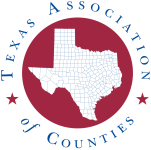News Article | May 30, 2024
House Committee Details Panhandle Wildfire Causes, Costs
On May 1, the Texas House Investigative Committee on the Panhandle Wildfires released its report to the 89th Legislature detailing the causes, economic impacts and proposed preventive measures for the devastating wildfires that swept through the region in late February.
The committee, formed by Speaker Dade Phelan, investigated the factors contributing to the wildfires, the allocation of resources and the effectiveness of disaster preparedness, and the coordination between local, state and federal entities in wildfire prevention and response.
Through a series of hearings, the committee gathered testimony on the five major wildfires, estimating that the economic loss to the Texas Panhandle and its direct economies could exceed $1 billion. This figure excludes the significant intangible toll on communities already grappling with drought.
The main Smokehouse Creek and Windy Deuce fires were severe enough to qualify Texas for Federal Emergency Management Agency (FEMA) Fire Management Assistance Grants, which reimburse up to 75% of the cost of fighting the fire for 31 Panhandle fire departments. However, private property losses won't meet FEMA's Individual Assistance Program criteria, though some may be eligible for Small Business Administration loans. The state is also ineligible for reimbursement of agency costs under FEMA's Public Assistance Grant Program.
The committee also warned of potential revenue declines for heavily impacted counties and taxing entities due to temporary exemptions on post-damage property appraisals, alongside concerns of rising insurance and utility rates as costs are passed to customers.
Key Findings and Recommendations
The committee concluded that the wildfires were caused by electric power poles and lines that had not been effectively maintained or replaced by a utility provider and an oil and gas operator. Committee members also found that ineffective air support, inadequate or flawed equipment, and poor communication and coordination among response agencies hampered the response to the fires. Further, they shed light on the dire underfunding of volunteer fire departments in the Panhandle region.
The committee report outlined specific actions and additional studies needed to predict, prevent and respond to future fires. These recommendations, which may lead to new bills in the next legislative session, include regulatory actions to address irresponsible practices by oil and gas operators and utility providers. The committee advocated for establishing a state firefighting air fleet, increasing funding for volunteer fire departments, improving coordination and utilization of incident management and fire mitigation strategies, and enhancing statewide communication systems for all first responders.
Proposed Legislative Actions
Prevention and allocation of resources:
- Increase oversight of oil and gas operators and utilities.
- Improve fire prediction and modeling.
- Increase funding to volunteer fire departments.
- Establish a state-owned firefighting air fleet, supplemented with private aircraft contracted directly with the state.
- Legislate job protection for volunteer firefighters.
- Study and make recommendations to improve coordination between local firefighters and the Texas Intrastate Fire and Mutual Aid Assistance System.
- Direct the Texas A&M Forest Service (TAMFS) to maintain a county-by-county database of available firefighting equipment to coordinate use during wildfires.
- Study procurement of surplus emergency vehicles from federal, state and other sources.
- Call on Congress and federal regulators to mitigate dangers posed to firefighters due to vehicle manufacturer compliance with federal emissions regulations.
- Encourage and incentivize retention of TAMFS administrators and personnel.
- Modify fire mitigation strategies.
Intergovernmental coordination and other considerations:
- Fund modernized equipment to ensure reliable communications among first responders, governmental agencies and local governments.
- Require coordination training and response efforts between TAMFS and volunteer fire departments.
- Address insurance coverage concerns and restrict rate increases.
- Prohibit utility rate increases.
- Revisit the ranking system for plugging orphaned wells.
See report for additional details.
For more information about this article, please contact Elizabeth Choate.

